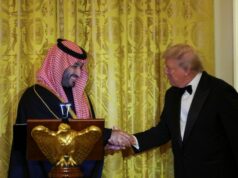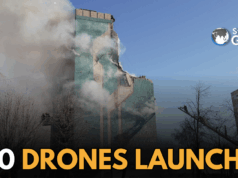Call it opening the Pandora’s Box, but there’s no doubt Russia targeting a missile facility in Ukraine with an Intermediate Range Ballistic Missile (IRBM) carrying conventional explosives on MIRVs (Multiple Independently Targetable Re-entry Vehicles), has lowered the nuclear threshold.
Although Russia reportedly informed the US and the Ukrainians about the strike 30 minutes before it hit, it has underscored an important point, says Brig Arun Sehgal (Retd), a writer and researcher on strategic issues.
“Russia has actually tested a nuclear delivery system against a specific target in another country, which has never happened so far.”
Sahgal was on The Gist, analysing the implications of the Russian action. He says the Russians also told the Americans and the Ukrainians that non-nuclear warheads were being used. This was necessary since it is impossible to distinguish otherwise, and the Americans would have noticed the preparations underway for the Russian missile launch.
It raises a lot of questions in Indian minds given that two nuclear-armed adversaries have this country in their sights: China and Pakistan, often acting in collusion.
“The Chinese claim to have 500 nuclear warheads but close to 2800 delivery systems,” he said, adding that “These are ICBMs, IRBMs, medium range missiles, also cruise missiles. So the question is why is China building up such a large spectrum missile force.”
What happens if China uses a ballistic missile armed with a conventional warhead against India’s missile sites or national command post? How does India respond? Technically, it does not bring India’s nuclear counter into play because the strike was conventional in nature although a strategic deliver system may have been used.
The Chinese refuse to formally and officially discuss these issues with India since they do not recognise this country as a nuclear power, because it has not signed the Nuclear Non-Proliferation Treaty.
The situation with Pakistan is worse since they do not subscribe to No First Use, in fact their field commanders are armed with tactical nuclear weapons in the event of an Indian invasion. These nukes, according to their doctrine, will be used on their territory against an Indian force, but India still sees this as a nuclear attack inviting “massive retaliation”.
Tune in for more in this conversation with Brig Arun Sehgal, writer and researcher on strategic issues.
Thirty eight years in journalism, widely travelled, history buff with a preference for Old Monk Rum. Current interest/focus spans China, Technology and Trade. Recent reads: Steven Colls Directorate S and Alexander Frater's Chasing the Monsoon. Netflix/Prime video junkie. Loves animal videos on Facebook. Reluctant tweeter.




